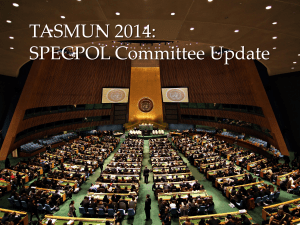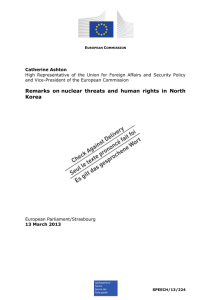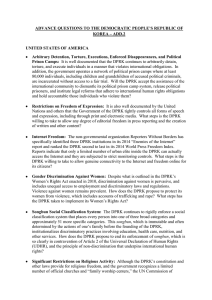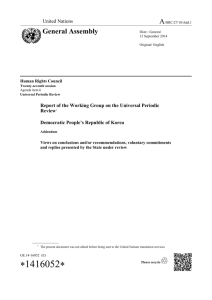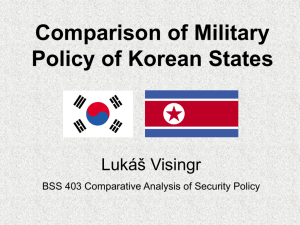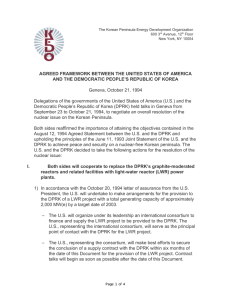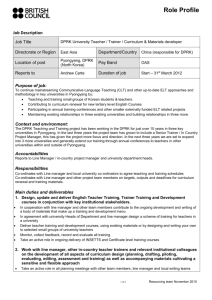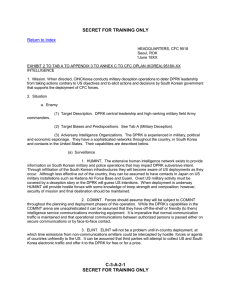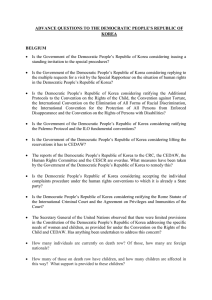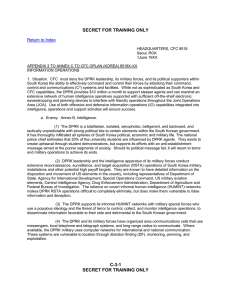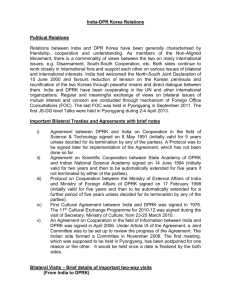Sample Position Paper
advertisement
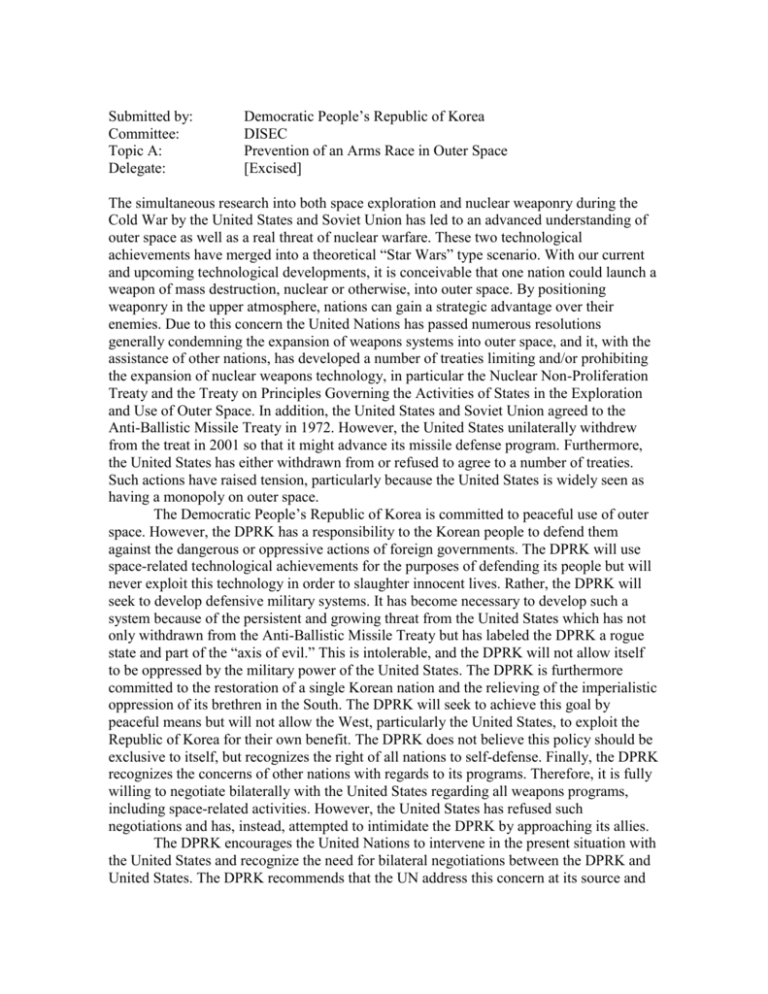
Submitted by: Committee: Topic A: Delegate: Democratic People’s Republic of Korea DISEC Prevention of an Arms Race in Outer Space [Excised] The simultaneous research into both space exploration and nuclear weaponry during the Cold War by the United States and Soviet Union has led to an advanced understanding of outer space as well as a real threat of nuclear warfare. These two technological achievements have merged into a theoretical “Star Wars” type scenario. With our current and upcoming technological developments, it is conceivable that one nation could launch a weapon of mass destruction, nuclear or otherwise, into outer space. By positioning weaponry in the upper atmosphere, nations can gain a strategic advantage over their enemies. Due to this concern the United Nations has passed numerous resolutions generally condemning the expansion of weapons systems into outer space, and it, with the assistance of other nations, has developed a number of treaties limiting and/or prohibiting the expansion of nuclear weapons technology, in particular the Nuclear Non-Proliferation Treaty and the Treaty on Principles Governing the Activities of States in the Exploration and Use of Outer Space. In addition, the United States and Soviet Union agreed to the Anti-Ballistic Missile Treaty in 1972. However, the United States unilaterally withdrew from the treat in 2001 so that it might advance its missile defense program. Furthermore, the United States has either withdrawn from or refused to agree to a number of treaties. Such actions have raised tension, particularly because the United States is widely seen as having a monopoly on outer space. The Democratic People’s Republic of Korea is committed to peaceful use of outer space. However, the DPRK has a responsibility to the Korean people to defend them against the dangerous or oppressive actions of foreign governments. The DPRK will use space-related technological achievements for the purposes of defending its people but will never exploit this technology in order to slaughter innocent lives. Rather, the DPRK will seek to develop defensive military systems. It has become necessary to develop such a system because of the persistent and growing threat from the United States which has not only withdrawn from the Anti-Ballistic Missile Treaty but has labeled the DPRK a rogue state and part of the “axis of evil.” This is intolerable, and the DPRK will not allow itself to be oppressed by the military power of the United States. The DPRK is furthermore committed to the restoration of a single Korean nation and the relieving of the imperialistic oppression of its brethren in the South. The DPRK will seek to achieve this goal by peaceful means but will not allow the West, particularly the United States, to exploit the Republic of Korea for their own benefit. The DPRK does not believe this policy should be exclusive to itself, but recognizes the right of all nations to self-defense. Finally, the DPRK recognizes the concerns of other nations with regards to its programs. Therefore, it is fully willing to negotiate bilaterally with the United States regarding all weapons programs, including space-related activities. However, the United States has refused such negotiations and has, instead, attempted to intimidate the DPRK by approaching its allies. The DPRK encourages the United Nations to intervene in the present situation with the United States and recognize the need for bilateral negotiations between the DPRK and United States. The DPRK recommends that the UN address this concern at its source and eliminate the threat faced by nations such as the DPRK. If the UN helps to put an end to oppressive imperial regimes, nations will have no reason to make the costly investment in space-based defense programs. Resolutions must discourage space-based military programs, but recognize them as a necessity in some situations. The DPRK is committed to peace, recognizes the necessity of self-defense, and is willing to cooperate the international community regarding the military applications of outer space.
